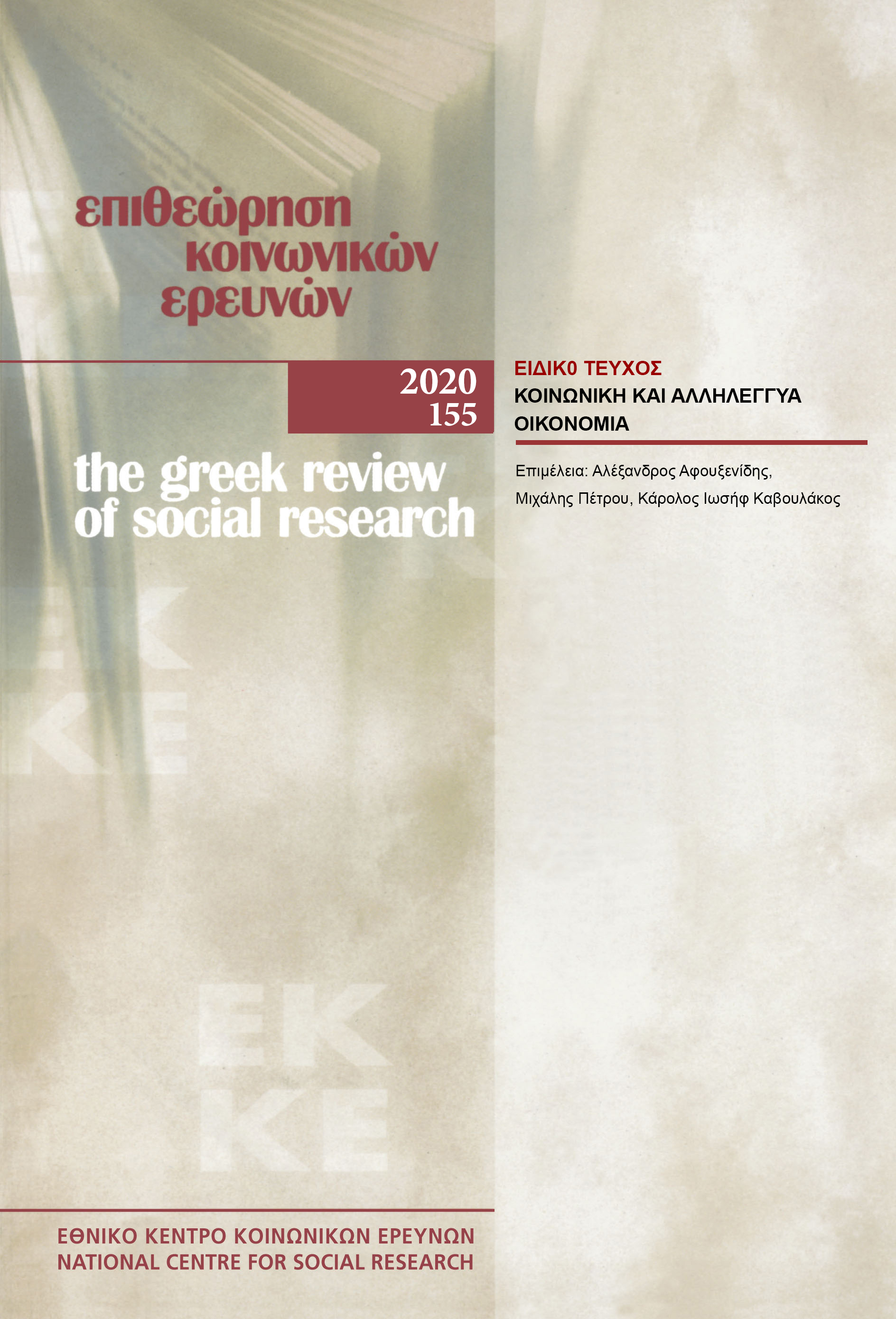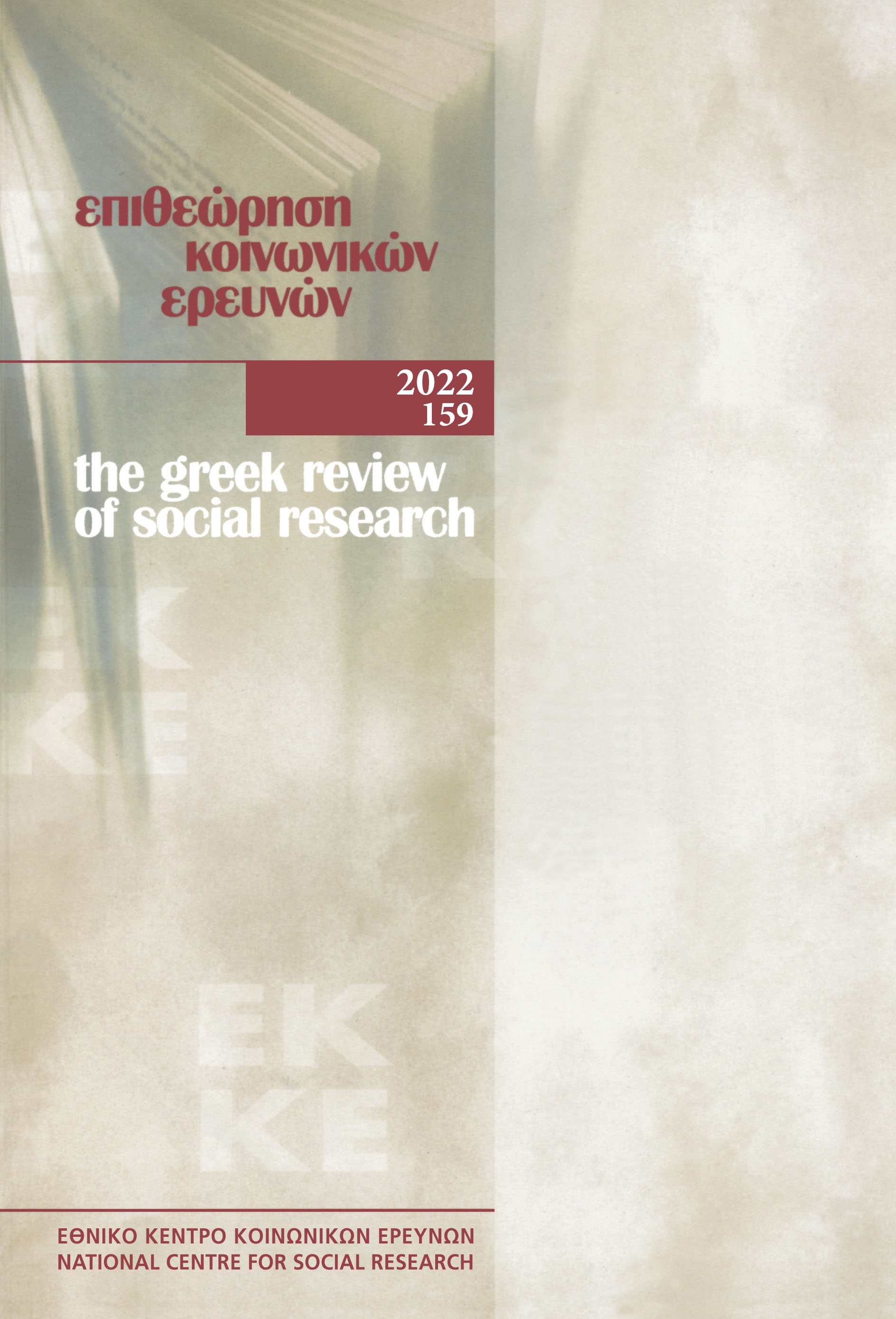Can cultural economy be social? Discussing about the rural heritage of Greece

Abstract
This article examines the landscape of heritage management in Greece, as shaped by social, political, and economic factors. It deconstructs the emerging state policy rationale and its ambitions for the sectors’ economic role, tuned to the neoliberal agendas of western-type economies. Considering ramifications for the future of cultural heritage, the idea of commons is analyzed as an alternative paradigm-solution. As it is argued, community-led governing models, following social and solidarity economy principles within a commons structure, could suggest a viable heritage management option that is worth exploring. This is further illustrated through the example of Naxos’ rural heritage.
Article Details
- How to Cite
-
Lekakis, S., & Dragouni, M. (2020). Can cultural economy be social? Discussing about the rural heritage of Greece. The Greek Review of Social Research, 155, 99–120. https://doi.org/10.12681/grsr.24827
- Section
- Articles

This work is licensed under a Creative Commons Attribution-NonCommercial 4.0 International License.
Authors who publish with this journal agree to the following terms:
- Authors retain copyright and grant the journal right of first publication with the work simultaneously licensed under a Creative Commons Attribution Non-Commercial License that allows others to share the work with an acknowledgement of the work's authorship and initial publication in this journal.
- Authors are able to enter into separate, additional contractual arrangements for the non-exclusive distribution of the journal's published version of the work (e.g. post it to an institutional repository or publish it in a book), with an acknowledgement of its initial publication in this journal.
- Authors are permitted and encouraged to post their work online (preferably in institutional repositories or on their website) prior to and during the submission process, as it can lead to productive exchanges, as well as earlier and greater citation of published work (See The Effect of Open Access).



